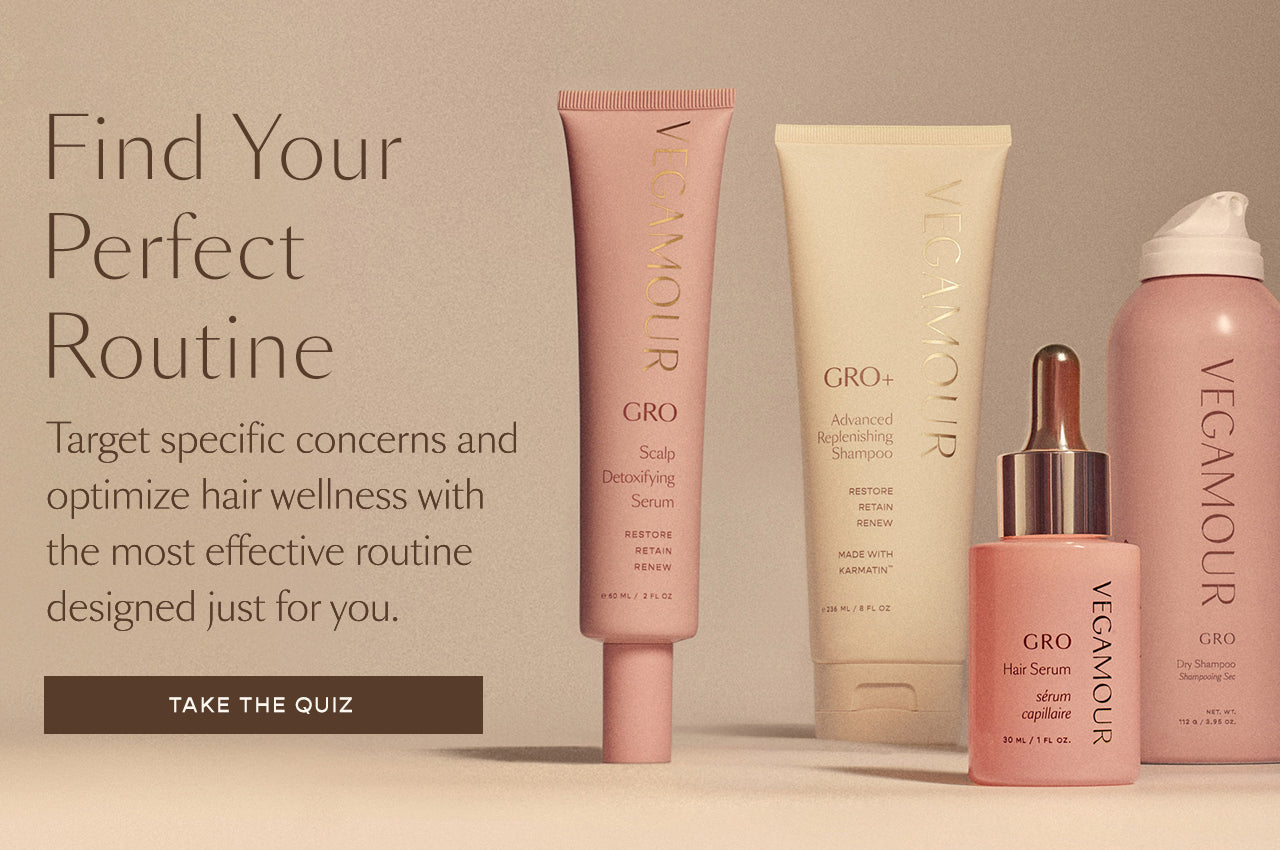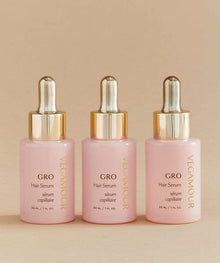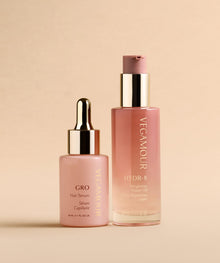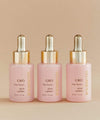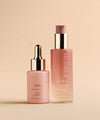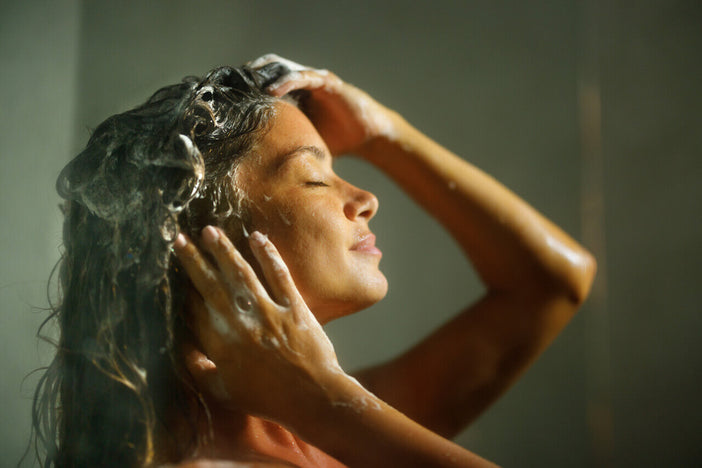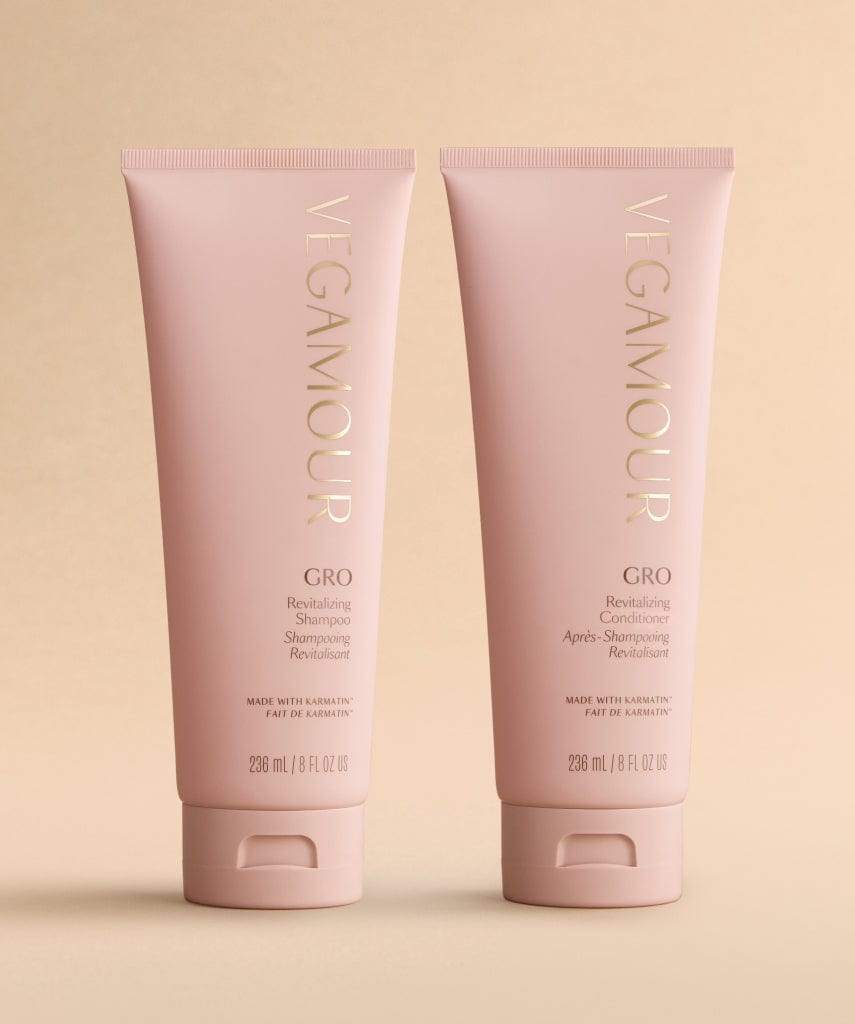Is Washing Your Hair Everyday Bad?
Daily hair washing is ingrained in us. We get up, shower for work, hit the gym and shower again. It's a cycle of cleansing that may seem totally natural to us but you may be surprised to find out that it's not totally natural for your hair. In fact, it can cause a great deal of harm to your scalp health, interfere with your scalp's natural production of oils and even dry out your hair to the point of damage.
Below, here are what the experts say about daily shampooing and some color-safe alternatives that may revive your over-washed hair to make it beautiful again.
How Often Should You Shampoo?
Most people should shampoo their hair about twice a week, unless:
- Your hair is naturally oily
- You work in an environment that soils your hair each day
- You workout frequently, leading to excess scalp sweat
- Your hair is exposed to chemicals or other toxins
- You have excessive product build-up on your hair
- Your scalp becomes packed with dead skin cells, scalp flakes or dandruff.
If any of these situations apply to you, then use a gentle shampoo that does not over-strip the natural oils but helps to balance the scalp's healthy environment. If you wash your hair every day as a personal preference, just be cognizant of using gentle products on your hair and scalp. Remember, scalp balance is key to keeping your hair looking and feeling its best.
Normal hair, wavy hair and hair that is free from chemical treatments may be washed 2-3 times a week with a gentle shampoo and conditioner routine that suits the hair type.
However, more washing could lead to:
- Damage to the natural hair
- Flaky scalp from dryness
- A dry and frizzy appearance to the hair
- Exacerbation of a dandruff problem
- Imbalances of the natural sebum (overproduction of oils)
- Hair breakage
Oil Glands on Your Scalp
While common knowledge may have you believe that the oils on your scalp and in your hair are unhealthy, this isn't necessarily the case. Your body produces sebaceous oils because your scalp and your hair need them.
Sebaceous glands on your scalp produce a natural oil called sebum. The sebum then glides down the hair shaft to keep it moisturized and protected. This also flushes your pores of debris and keeps your scalp biome healthy.
Scalp issues can be created when:
- A pore becomes clogged with sebum, creating a pimple or blemish.
- Pores do not release enough oils which can create dry hair strands or a flaking, dry scalp.
- The scalp is exposed to pathogens, debris, free radicals, sunlight or other external factors that disrupt the scalp's natural health.
- You wash your hair too much or too harshly, which causes the oil glands to produce more oils than is needed, creating oily scalp conditions.
The key to good scalp health is to find a natural balance that doesn't strip the oils too much but also cleanses. Also, a daily regimen that nourishes the hair's health without saturating the scalp with pore-clogging molecules is important. Many scalp issues can be prevented simply by using the right shampoo. We recommend a gentle one without a lot of chemicals or phthalates, which is a healthy option for all hair types.
Shop: Courtney Wyse's Top VEGAMOUR Picks
When to Wash Your Hair Less Frequently
The following hair types may want to forego daily washing for a more gentle routine:
- Long thick hair: This hair type needs its natural oils for moisture to maintain the more dense and long lengths. Brushing the hair each day becomes more important than frequent shampooing. Shampoo 1-2 times weekly and use a scalp detox when needed to keep your scalp environment healthy.
- Damaged hair: Hair with split ends or rough-textured hair could need to retain more moisture by fewer washes. Avoid heavy styling products and opt for paraben-free styling whenever possible. Also, avoid heat styling or chemical hair dyes when you are working to repair damaged hair lengths. Regular haircuts will help remove or prevent split ends.
- Thin hair: This hair type tends to show oil more easily, but this does not mean you have to wash your hair every day. A few sprays of dry shampoo designed for thinning hair can help extend absorb excess oil in between wash days. Choose lightweight styling products to help maintain the right balance between cleansing and styling.
What the Experts Say About Frequent Shampooing
VEGAMOUR spoke with Allyson Carter, hairstylist and editor-in-chief of Hair Spies, who gave us some great information about how daily washing affects your hair and scalp.
"If your scalp produces oils, then there should be a reason it does, right? The oils produced by your scalp are essential for hair growth and health." said Carter.
Carter went on to explain the relationship between oil production and shampooing. "If you are constantly stripping your scalp of these oils, then your scalp will become dry and cause a trigger response that produces even more oil to compensate," she said. "And then, your hair will be visibly oily, you will wash your hair again and the vicious cycle just continues."
Carter also cautioned against shampooing every day if you have curly, fine or oily hair as these types of hair tend to have oil production issues or more delicate hair strands. It's best to shampoo your hair every 2-3 days for fine hair and even longer for curly hair (which can go one week to 10 days between washing, depending on the scalp conditions) unless your hair is especially soiled and must be cleaned.
Alternatives to Daily Shampooing
There are other ways you can keep your scalp clean and healthy without daily washing. To avoid washing you hair each day, try some of these quick pick-me-ups for more natural and healthy hair:
- Use a dry shampoo spray on your hair lengths, brushing the product through with a natural bristle brush to remove product build-up, sweat and excess oils.
- Instead of washing your hair, give it a spritz of a lightweight leave-in conditioner. This works well for thick hair with natural waves or layers. No need to rinse; simply scrunch the hair to revive a carefree and natural style.
Make Daily Shampooing Work for You
Shampooing your hair is refreshing. It makes you feel good. And sometimes, habits are hard to break. Even though daily shampooing can be pretty hard on your scalp and hair health, there are a few things you can do to be sure your shampoo and conditioner are daily-wash-friendly.
Use shampoos that does not contain sodium lauryl sulfate or sodium laureth sulfate, both of which could strip your hair when used daily. Choose lightweight conditioners that have vegan proteins rather than animal keratin. GRO Revitalizing Shampoo and Conditioner can help revive thinning hair and make it look fuller and healthier. With no sulfates, this cruelty-free formula features Karmatin™️, a microencapsulated vegan b-SILK™️ protein, a good choice no matter your hair type.
It's Okay to Enjoy Washing Your Hair Frequently
If you're mindful about the products you use and the ways in which you wash your hair, daily cleansing isn't the worst thing you can do to your hair. More tips for washing hair gently:
- Use warm but not hot water. This helps prevent the over-stripping oils and drying out your hair.
- Do not scratch or scrub the scalp harshly. While tempting if you have dandruff or other scalp build-up, this could create abrasions on the scalp which could make you more susceptible to infection or sores on your scalp. Instead, gently use circular motions on the scalp with the pads of your fingertips and let your shampoo do the work.
- Rinse well and follow with a conditioner to make sure all cleansers are removed from the hair.
VEGAMOUR blog posts offer more great tips on how to wash your hair properly and how to care for all types of hair. Bookmark our blog to stay in the know on all topics relating to your healthy hair and scalp, as well as some great hairstyling tips to keep you looking and feeling your best.
More From VEGAMOUR
- Why 1 Bottle of This Hair Serum Sells Every 15 Seconds
- What to Expect From PRP for Hair Loss
- Are Baby Hairs a Sign of Breakage or New Growth?
- Future You Is Calling ... Are You Answering?
Photo credit: skynesher/iStock
